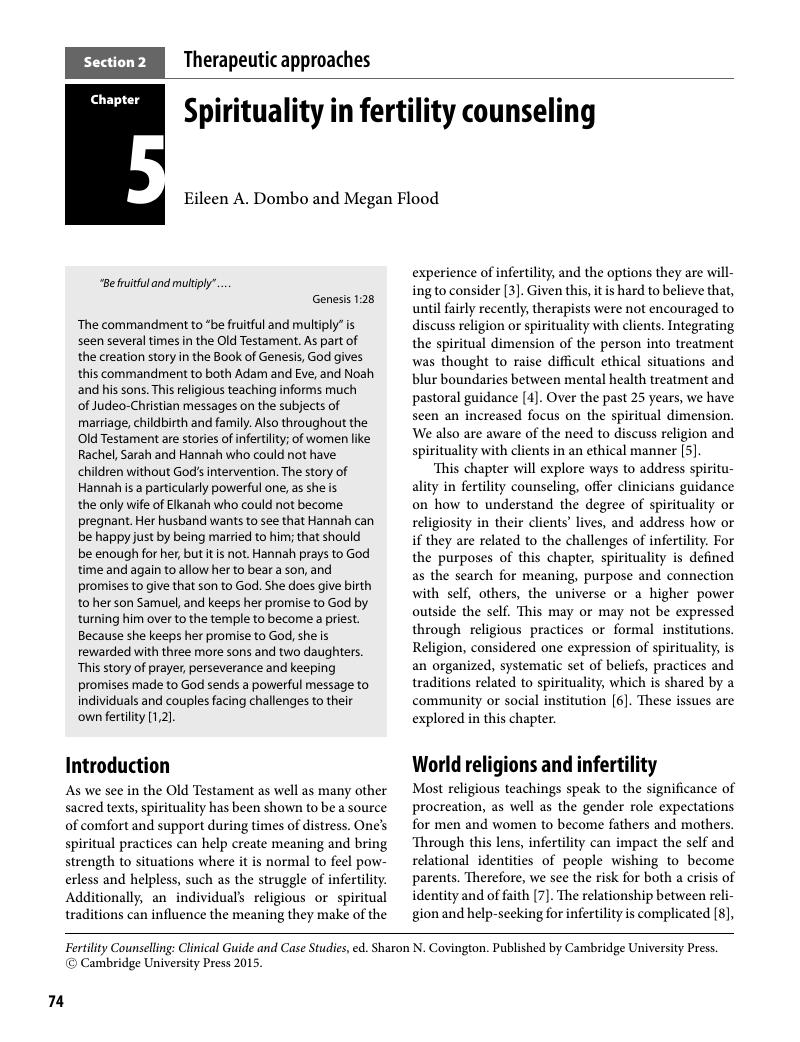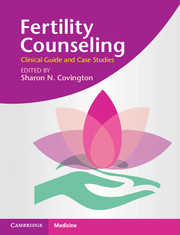Book contents
- Fertility CounselingClinical Guide and Case Studies
- Fertility Counseling
- Copyright page
- Dedication
- Contents
- Contributors
- Foreword
- Book part
- Section 1 Introduction
- Section 2 Therapeutic approaches
- Chapter 3 Fertilitycounseling for individuals
- Chapter 4 Fertilitycounseling for couples
- Chapter 5 Spirituality in fertility counseling
- Chapter 6 Reproductive psychiatry andfertility counseling
- Section 3 Third party reproduction: assessment and preparation
- Section 4 The expanding image of families
- Section 5 Special topics in fertility counseling
- Section 6 Practice issues
- Glossary
- Index
- References
Chapter 5 - Spirituality in fertility counseling
from Section 2 - Therapeutic approaches
Published online by Cambridge University Press: 05 May 2015
- Fertility CounselingClinical Guide and Case Studies
- Fertility Counseling
- Copyright page
- Dedication
- Contents
- Contributors
- Foreword
- Book part
- Section 1 Introduction
- Section 2 Therapeutic approaches
- Chapter 3 Fertilitycounseling for individuals
- Chapter 4 Fertilitycounseling for couples
- Chapter 5 Spirituality in fertility counseling
- Chapter 6 Reproductive psychiatry andfertility counseling
- Section 3 Third party reproduction: assessment and preparation
- Section 4 The expanding image of families
- Section 5 Special topics in fertility counseling
- Section 6 Practice issues
- Glossary
- Index
- References
Summary

- Type
- Chapter
- Information
- Fertility CounselingClinical Guide and Case Studies, pp. 74 - 84Publisher: Cambridge University PressPrint publication year: 2015



